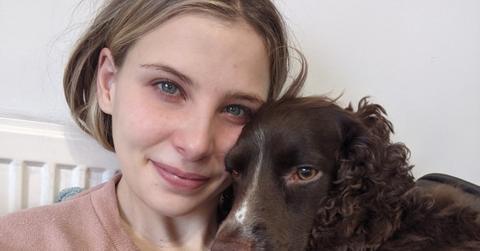Natalie Florence, Bedridden Model With Rare Medical Conditions, Builds Racy Content Empire
The diagnosis, when it finally came, read like a medical textbook nightmare.
Published Nov. 18 2025, 3:08 p.m. ET

Natalie Florence was dying, and nobody could figure out why. The UK-based creator, teacher, and marketing consultant spent nine months unable to lift her head from her pillow. Her heart rate plummeted. The sensation in her skull, she says, felt like being crushed in a vice.
Her dog Hazel became her constant companion, lying across her chest as doctors ran test after test, finding nothing. She applied for welfare benefits. She could barely walk. At just 20 years old, her body had simply ... stopped.
What everyone sees now is the million-follower Instagram presence and the soft femininity that's become her signature. What they don't know is that the woman radiating confidence in sensuality and self-possession is the same person who was told she might never work again.
The diagnosis, when it finally came, read like a medical textbook nightmare: Chiari malformation, cranio-cervical instability, Ehlers-Danlos Syndrome and dysautonomia. Four chronic conditions, no cure and unpredictable progression. Florence had lost her career, her mobility and nine months of her life. Then a friend mentioned she was creating content on OnlyF---.
"I came into this industry by chance," Florence says. But what started as economic necessity became something else entirely: a reconstruction of identity from the ground up.
Here's where it gets interesting. While critics dismiss adult content creation as exploitative or degrading, Florence experienced the opposite. The work that many bemoan as objectifying her actually gave her something back that chronic illness had stolen. "It has really helped me feel confident in my sensuality, sexuality and myself," she explains. "I feel like I know who I am and am so much more confident in who I am."
Florence manages her unpredictable health conditions while traveling internationally for work. Consider the irony: a woman with a degree in English and Spanish, trained as an educator and marketing consultant, ultimately found empowerment in the least traditional career path. She's since expanded into DIY content, fishing tutorials, lifestyle modeling, built multiple revenue streams and eclipsed the one-million follower milestone on Instagram.
The timeline matters. Just a few years ago, Florence was applying for disability benefits. Today she's financially independent with the flexibility to rest when her body demands it, something virtually no traditional employer would accommodate. She works while she still physically can, knowing that window might close.
This isn't a redemption story, but a reinvention story. And it raises an uncomfortable question: what if the industries we've been told degrade women are actually offering chronically ill and economically vulnerable people options that traditional employment structures systematically deny them?